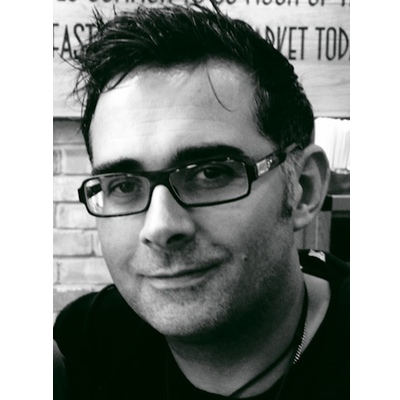
Give The Test a Rest, Continued
– Luke Meddings
Two years ago I sat with Chuck Sandy and Vladimira Chalyova in a cafe in Kosice, Slovakia, discussing the problem of standardised assessment and brainstorming possible slogans. ‘Give the test a rest!’, I ventured. ‘I’m more than a score!’, countered Chuck.
This article is a continuation of work that has gathered pace since that day: an effort to understand what strikes me as a universal problem in education, namely the increasing lack of time and space available to teachers and students to explore their subject (any subject) critically and creatively.
I’m not against assessment per se – it’s woven into every moment we spend with students, as we sense when and how to intervene in their learning journey. It can motivate, and it can – if used to counter the potential bias of personal recommendation, for example – democratise. But if it is over-prioritised, it can limit what we do in classrooms to a rainy parade of past papers. It can reduce the syllabus to testable chunks. It can be done far too much, and much too young: increasingly, it is.
I want to consider assessment from a very broad perspective. Firstly, by looking at our teaching lives in the context of broader trends. Secondly, by using a poem from the last century, the one that was modern, as a reference point. And thirdly, by suggesting five points for reflection and action. Without reflection there is no understanding; without action there is no change. And without change – well, what then? Standardised testing will continue to endorse and reinforce increasingly narrow curricula worldwide, narrowing opportunity for the many while limiting exposure to true academic challenge for the few.
1) Times Like These
We live in a management culture, and we live and breathe business speak. We talk of accountability before we talk of humanity. We speak of parents as stakeholders, and we hasten to call any series (of films, of books, of children even, if we are stakeholders in the family business) a franchise.
We live in a measurement culture. Show me the data. Give me the proof. I can’t sell it in without the numbers. ‘Economic imperatives’, writes Raoul Vaneigem in The Revolution of Everyday Life, ‘seek to impose on the whole of human activity the standardised measuring system of the market.’ He was writing in 1967. ‘Every aspect of public and private life ,’ he pursued, ‘is dominated by the quantitative.
It’s not just teachers who suffer. As communities begin to resist standardised testing, we hear the voices of learners. ‘There is this serious force on students, when it comes to testing,’ said Alex Kacsh at the United Opt Out Conference in Denver, Colorado, ‘that if you don’t do well you’re going to lose your teacher and you’re going to lose your school.’ This is testing as surveillance, testing as threat. This is testing as an instrument not of social opportunity but of state power.
2) A poem, for contemplation.
One cannot make an argument without feeling.
Dolor, by Theodore Roethke
I have known the inexorable sadness of pencils,
Neat in their boxes, dolor of pad and paper-weight,
All the misery of manilla folders and mucilage,
Desolation in immaculate public places,
Lonely reception room, lavatory, switchboard,
The unalterable pathos of basin and pitcher,
Ritual of multigraph, paper-clip, comma,
Endless duplication of lives and objects.
And I have seen dust from the walls of institutions,
Finer than flour, alive, more dangerous than silica,
Sift, almost invisible, through long afternoons of tedium,
Dropping a fine film on nails and delicate eyebrows,
Glazing the pail hair, the duplicate grey standard faces.
3) Five points for reflection and action.
Let’s look at the problem in our academic context in five different ways, and think how we might get out of this fix.
Ideology
There is an ideological issue. This relates to the portrayal of standardised testing as value-neutral. We can see this in the literature of testing, where new tests, increasingly online, are portrayed as being in line with best practice – evidenced by their alignment with frameworks like the CEF. But we are learning to recognise, understand and critique.
Psychology
There is a psychological issue, which relates to the dynamic of the oppressor and the oppressed. If oppression is sufficiently advanced, it becomes hard to believe that it is really being carried out against one’s best interests. One can develop sympathy for the methods of those who place us under an intolerable burden: there must be reason in such madness. This area is perhaps worthy of exploration.
Economy
There is an economic issue, which relates to the opportunity seen by large corporations for profit in a wounded public school system, and who recognise opportunity in the general mania for data. Again, we must be ready to see this for what it is, and to call out the organisations that flourish in our own field for their unnecessary testing activity.
Pedagogy
There is a pedagogical issue: this is where we can make a difference on a day-to-day level. Formative assessment offers a route to dialogue with students and parents as project work is assessed and the results shared on a regular, not occasional basis. We can make our own tests, and ask our students to get involved. And we can make sure we step back from the test – which may help when it comes to the exam.
In the UK, the Villers Park Education Trust reaches out to gifted pupils living in disadvantaged areas by helping them develop a passion for their subject. And the way to do that, explains chief executive Richard Gould, ‘is by not getting them to do anything that’s in their exam specification.’ According to research he citesthey end up with better grades.
Politics
Finally, there is a political issue. By political, I mean an issue with which we need to engage as citizens. To counter the measurement machine we need to make space in our classrooms. We need to make contact with colleagues in what can only be an international project of resistance. And we need to make the argument – with students, with parents, with colleagues, with education managers, with education departments, with education ministers. My own belief is that we should start by reclaiming 50% of our classroom time from standardised assessment, the curriculum and the course book. Going 50-Free will help develop our critical and creative capacities as educators, hand in hand with those of our students.
Connect with Luke and iTDi Associates, Mentors, and Faculty by joining iTDi Community. Sign Up For A Free iTDi Account to create your profile and get immediate access to our social forums and trial lessons from our English For Teachers and Teacher Development courses.

